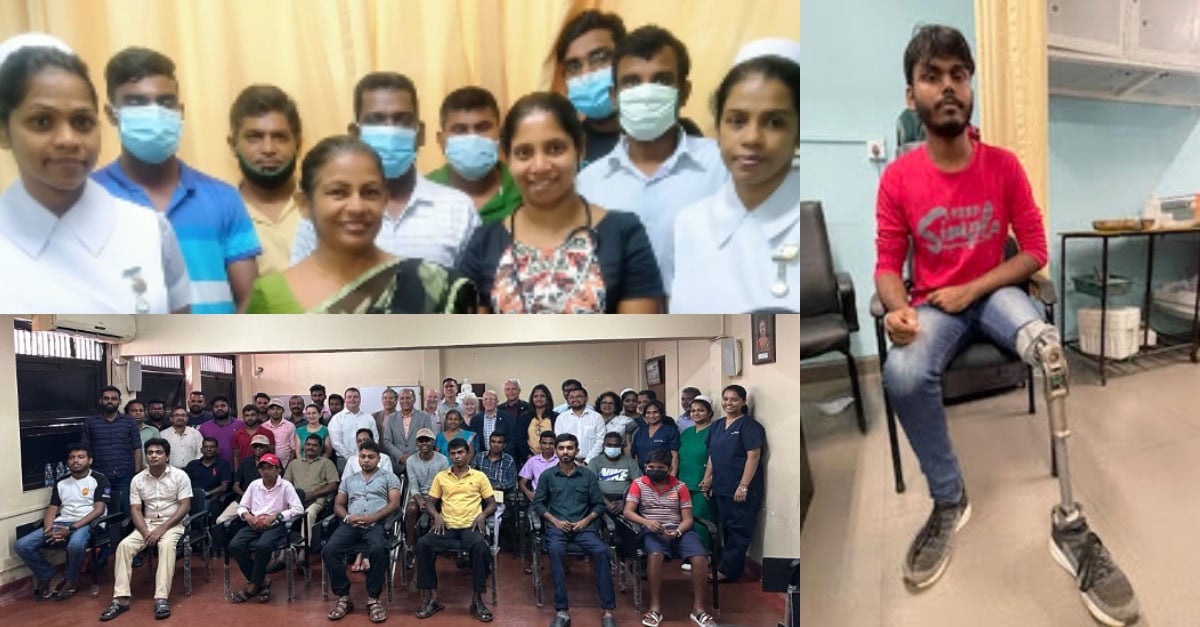The WFH supports the Sri Lankan inherited bleeding disorders community through several endeavours, such as the WFH Humanitarian Aid Program, which provides donated treatment products, and the WFH International External Quality Assessment Scheme (IEQAS) which monitors and improves laboratory performance in hemophilia treatment centres (HTCs). In the case of the 20-year-old man with hemophilia A, donated factor and non-factor replacement therapy provided by the WFH Humanitarian Aid Program allowed him to have surgery so that he could regain his mobility.
In 2015, the man from a remote village was referred to the National Hospital of Sri Lanka with a swollen knee that had plagued him for over five years. His condition caused frequent bleeding episodes—up to 30 times per year—until the repeated swelling in his knee permanently affected the joint’s mobility. Soon after being admitted, doctors diagnosed him with hemophilia A and a high level of inhibitors.
Despite efforts with older treatments like bypassing agents and tranexamic acid, his condition worsened, and imaging in 2020 revealed a large pseudotumor in his knee joint. Fortunately, donated treatment products provided by the WFH Humanitarian Aid Program helped to reduce his bleeds, and, in 2022, he underwent an above-knee amputation, with bleeding well-controlled during and after the procedure.
Since then, the man has received regular non-factor replacement therapy prophylaxis, allowing him to live a more normal life. In 2024, he was fitted with a prosthetic leg, received physiotherapy, and was even able to resume his studies. He is now fully mobile, able to pursue an education—and will one day be able to work to support his family.
The WFH supports countries like Sri Lanka so that they can one day provide sustainable care to their inherited bleeding disorders communities. While the above case is encouraging, the goal is for healthcare professionals in emerging countries to be able to identify PWBDs at an early age, so that children can lead normal lives, and not have serious complications that require major surgeries.
The WFH Humanitarian Aid Program has donated over 75 million IUs of factor and nearly 700,000 mg of non-factor replacement therapy to Sri Lanka since 2015. Almost 8.8 million IUs of factor, and nearly 130,000 mg of non-factor replacement therapy were donated in 2024 alone. To find out more about the Program, please click here.
About the WFH Humanitarian Aid Program
The WFH Humanitarian Aid Program improves the lack of access to care and treatment by providing much-needed support for people with inherited bleeding disorders in developing countries. By providing patients with a more predictable and sustainable flow of humanitarian aid donations, the WFH Humanitarian Aid Program makes it possible for patients to receive consistent and reliable access to treatment and care. None of this would be possible without the generous support of Sanofi and Sobi, our Founding Visionary Contributors; Bayer, CSL Behring and Roche, our Visionary Contributors; Grifols, our Leadership Contributor; and Takeda, our Contributor. To learn more about the WFH Humanitarian Aid Program, visit www.treatmentforall.org.













